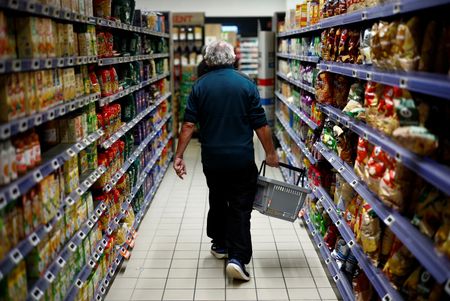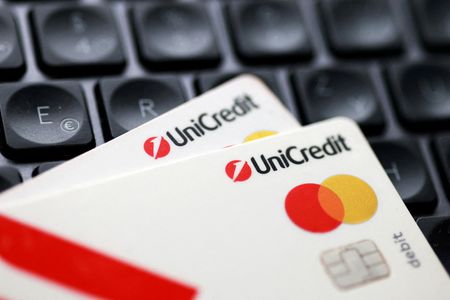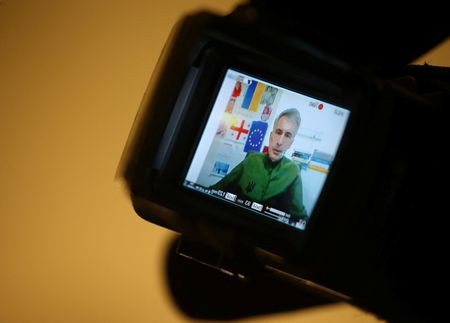By Olivier Cherfan
(Reuters) -Belgium’s Solvay reported a quarterly profit beat on Thursday, helped by a sale of surplus CO2 emission rights, and confirmed 2025 outlook as the chemicals group revamps its portfolio amid energy-transition projects and weak European production.
Solvay, which produces a range of essential chemicals from soda ash to peroxides used in high-purity electronics, said its underlying earnings before interest, taxes, depreciation and amortisation were 232 million euros ($271 million) in the third quarter, well ahead of analysts’ average forecast of 203 million euros in a Vara consensus.
However, excluding the one-off gain from selling the emission rights, the quarterly core profit missed market expectations by 5%, which sent Solvay’s shares 3.7% lower as of 0906 GMT.
“Whilst future sales of CO2 emission rights are a possibility, this will mainly depend on future soda ash production levels in Europe and the overall competitive pressures within the soda ash market,” analysts from KBC Securities said in a note.
Meanwhile, orders for Solvay’s Brazil-based Coatis solvents brand have been hurt by steep U.S. tariffs on Brazilian chemical exports, which have been squeezing margins and rerouting trade.
Peers including Braskem and Dow face similar headwinds, which also include foreign exchange swings, pricing and contract uncertainty, as buyers consider import substitutions.
“This is not forever,” CEO Philippe Kehren told reporters when asked about the Coatis-related concerns.
“There are still some discussions on all these topics and there are some measures that have been announced by the Brazilian government in order to correct those impacts. So we can only expect that,” he added.
Solvay still expects its underlying EBITDA to come in between 880 million and 930 million euros this year, along with free cash flow of around 300 million euros and up to 300 million euros of capital spending.
($1 = 0.8575 euros)
(Reporting by Olivier Cherfan in Gdansk, editing by Milla Nissi-Prussak)









